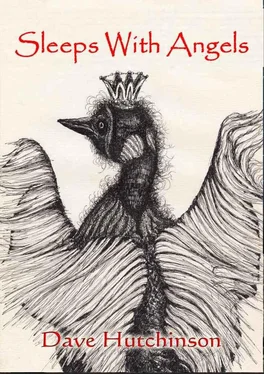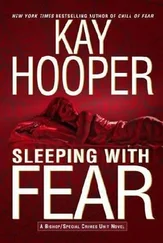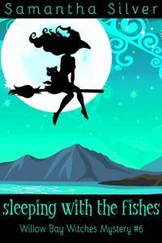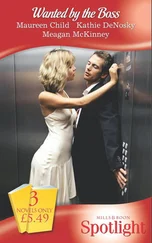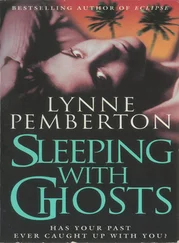“Don’t be ridiculous,” she said. “I’m perfectly safe.”
McKie considered for a second or so. “If you’ll just wait a moment, Miss, I’ll call it in and then I’ll be delighted to accompany you.”
“That won’t be necessary,” Willem said, seeming to materialise soundlessly at her shoulder. “I’ll be taking the air with Ms Peterson.”
McKie said, “With respect, sir —”
“Enough respect,” Willem said. “I was fighting the Chechen Mafia when you were still being toilet-trained. Have you ever fought the Chechen Mafia?”
“No, sir,” McKie said, in a baffled tone of voice.
“If you had, you’d know there is nothing here I am afraid of,” Willem went on. “And I am armed.” He held up his rifle.
“Me too,” said Rae. She held her hands out and all of a sudden she was holding a futuristic-looking rifle, matt-black, with many strange buttons and modules and a parabolic reflector at the end of its barrel. “Phased plasma rifle,” she said. “Fifty kilowatt range.”
The other soldier took a step back, but McKie stood his ground. “I’ll still have to call it in,” he said finally.
“Fine,” she said. “Call it in. We’re not going far.”
She and Willem left the two soldiers standing there outside the hotel. They walked up towards Shaftesbury Avenue, then turned up the Charing Cross Road, their footsteps echoing in the great silence of London. Not all of the streetlights were working, Rae noticed. Power was certainly coming from somewhere , but the bulbs still burned out. She assumed Gottlieb’s men replaced them, but she also assumed he couldn’t spare the manpower to replace them all.
“Does that thing work?” Willem asked after a while, nodding at the gun she was carrying.
She lifted it up. “This? Of course it works.” She raised it to her shoulder, sighted up the road at the front of a building, and squeezed the trigger. The gun made a modulated beeping sound, LEDs flashed on its sides, and a stream of soap bubbles emerged from a hole in the middle of the parabolic antenna. She looked bashfully at Willem, and they both laughed, but she wondered. She had wanted a toy gun, and a toy gun had been created. What would have happened if she had really wanted a futuristic particle beam weapon? Would she have got one of those?
“Can I ask you a question?” she said a few minutes later, as they wandered through the little streets and squares of Soho.
“Of course.”
“What you told Corporal McKie about the Chechen Mafia. Was that true?”
He nodded. He had never spoken in any great detail about his former life. He’d never hidden the fact that he had been a gangster, a killer, but he had never volunteered any stories about it, and she had respected that, all these years.
“Were they bad? The Chechens?”
He shrugged. “Any man who kills you is bad ,” he mused. “The Chechens were ruthless and tough, but they were honourable men, by their own lights. Not everyone was so honourable.”
“I still find it hard to imagine you, living that life.”
“I’m not.” He smiled briefly at her. “That life’s over.”
“Why did you do it, though?”
He thought about that for a while. “I was good at it,” he said finally.
They walked on for a while in silence, until they reached a set of streets blocked by parked cars and lorries — the southern edge of the Household Cavalry’s little nation. They turned north and found themselves at Oxford Circus.
“Pargeter’s experts tell him it hasn’t been fifteen years since La Silence ,” she said. “They say it’s been almost two thousand years.”
“And why do they say that?” he asked.
“They have computer programs that can show you the positions of the stars from any time since the Crucifixion to, oh, I don’t know, hundreds of thousands of years into the future. They just ran it and compared the results with the positions of the stars.”
Willem thought about it. “I don’t feel two thousand years old,” he said.
“Me neither. I remember those computer programs, though. They’re supposed to be pretty accurate.” She turned and started to walk back eastward along Oxford Street. “Do you remember I told you about Mars?”
“I remember you told me it isn’t there any more. I remember you said there was something in its place. You didn’t know what it was.”
“Pargeter thinks that’s where everyone is,” she said. “He thinks the human race became some kind of group mind, dismantled Mars, and built this thing to live in. He thinks that’s where the electricity’s coming from.”
“You keep saying thinks ,” Willem pointed out. “I presume he doesn’t have a pretty accurate computer program to tell him these things.”
She shook her head. “No,” she said. “No, he doesn’t. It’s all conjecture.”
“Does it matter?”
Rae looked at him, walking softly and alert beside her. “Of course it does. Don’t you want to know what happened?”
“I used to. Now? No, I don’t think so. Would knowing change anything? Would it bring everyone back? Would I even want everyone back?”
She was surprised. She’d never heard him talk like this. “I didn’t know you felt that way.”
“My old life, it wasn’t much of a life, to be honest,” he said. “The lifestyle of the organised criminal is over-rated. Always wondering when someone would ambush you and cut your throat and pull your tongue out through the slit. I have another life now.”
“I can’t just let it go like that,” she told him. “I have to know, if I can.”
“Do you think there’s an answer in Hyde Park?”
She shrugged helplessly. “I don’t know. Pargeter thinks so. He wants me to spy for him.”
Willem said, “Pargeter this, Pargeter that,” and made a rude noise. “Suppose there is no answer? Suppose this is just something the universe does, for no conscious reason ? Suppose it just… whips away the tablecloth from underneath us every few million years? Suppose it’s just part of the way things are ?”
“That’s a scary thought,” Rae said.
“Scarier than Pargeter’s hive mind?”
“Yes,” she said. “Much scarier.”
They cut south again, around Soho Square and back down the Charing Cross Road towards Seven Dials.
As they approached the hotel, Willem stopped and turned to face her. “You came here to cure a little girl, Rae,” he said. “Or to try, anyway. Forget the big questions, for a while at least. Try to concentrate on the things you can understand.”
“But I don’t understand,” and she felt small and helpless and lost. “I don’t understand any of it.”
He nodded. “Neither do I. But Elżbieta needs you; you’re no good to her if your mind’s full of Pargeter’s cosmic madness. Okay?”
Rae rubbed her eyes and nodded.
“Okay,” he said. “You’re tired. Go to bed.”
She nodded. “Thank you, Willem.”
“It’s what I’m here for,” he said. “And I think you can get rid of that gun now.”
Breakfast the next morning was bacon and egg and sausage and fried potatoes and hash browns and baked beans and croissants and fried mushrooms and devilled kidneys and kedgeree and cereal and muesli and coffee and tea and a rainbow of fruit juices, and everyone was very happy. Rae surprised herself by being ravenously hungry, and piled up her plate. She didn’t even mind when people kept drifting across to her table and interrupting her breakfast to ask advice or settle little disputes. My people , she thought. They had come with her for no other reason than that she was coming here, and she felt rather proud of them, and rather ashamed of being so grumpy the previous evening. She wondered what they would all do when this was over. She wondered where Eddy Colorado was.
Читать дальше
